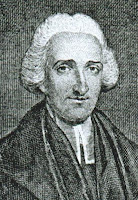Keeping Your Voice Healthy
There are many different reasons why your voice may sound hoarse or abnormal from time to time, and some of these reasons are things that you can not really control. An example would be catching a common cold virus that causes laryngitis. Sure, you can wash your hands frequently and try to avoid people with colds, but virtually everyone catches a cold with a bit of laryngitis now and again.
What you probably did not know is that there are steps you can take to prevent many voice problems. The following steps are helpful for anyone who wants to keep their voice healthy, but are particularly important for people who have an occupation, such as teaching, that is heavily voice-related.
What you probably did not know is that there are steps you can take to prevent many voice problems. The following steps are helpful for anyone who wants to keep their voice healthy, but are particularly important for people who have an occupation, such as teaching, that is heavily voice-related.
Key Steps for Keeping Your Voice Healthy
- Drink plenty of water. Moisture is good for your voice. Hydration helps to keep thin secretions flowing to lubricate your vocal cords. Drink plenty (up to eight 8-ounce glasses is a good minimum target) of non-caffeinated, non-alcoholic beverages throughout the day.
- Try not to scream or yell. These are abusive practices for your voice, and put great strain on the lining of your vocal cords.
- Voice Warm up. Warm up your voice before heavy use. Most people know that singers warm up their voices before a performance, yet many don't realize the need to warm up the speaking voice before heavy use, such as teaching a class, preaching, or giving a speech. Warm-ups can be simple, such as gently gliding from low to high tones on different vowel sounds, doing lip trills (like the motorboat sound that kids make), or tongue trills.
- Don'’t smoke. In addition to being a potent risk factor for laryngeal (voice box) cancer, smoking also causes inflammation and polyps of the vocal cords that can make the voice very husky, hoarse, and weak.
- Use good breath support. Breath flow is the power for voice. Take time to fill your lungs before starting to talk, and don't wait until you are almost out of air before taking another breath to power your voice.
- Use a microphone. When giving a speech or presentation, consider using a microphone to lessen the strain on your voice.
- Listen to your voice. When your voice is complaining to you, listen to it. Know that you need to modify and decrease your voice use if you become hoarse in order to allow your vocal cords to recover. Pushing your voice when it's already hoarse can lead to significant problems. If your voice is hoarse frequently, or for an extended period of time, you should be evaluated by an Otolaryngologist (Ear, Nose, and Throat physician.)
PHONE
(026) 856 3637
(026) 207 6956
(020) 607 6956
(026) 610 7515





















